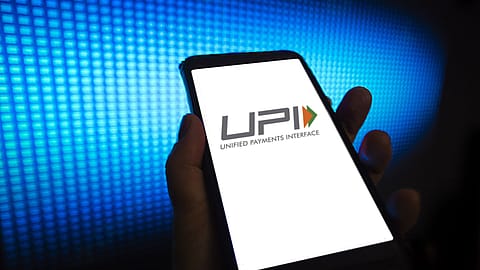No charges on UPI payments: Govt
The clarification comes days after the Reserve Bank of India (RBI) proposed a tiered charge framework for UPI payments.

The Finance Ministry has said the government will not impose any charges on Unified Payments Interface (UPI) transactions as concerns of service providers for cost recovery have to be met through other means.
The clarification comes days after the Reserve Bank of India, in a discussion paper, proposed a tiered charge framework for UPI payments where charges could be imposed based on the different amount bands. The RBI paper also proposed replacing the zero-charge framework for UPI transactions with a subsidy.
"UPI is a digital public good with immense convenience for the public & productivity gains for the economy. There is no consideration in Govt to levy any charges for UPI services. The concerns of the service providers for cost recovery have to be met through other means," the Ministry of Finance says in a statement.
The government had "provided financial support for #DigitalPayment ecosystem" last year and has announced the same this year as well to encourage further adoption of digital payments and promotion of payment platforms that are economical and user-friendly, the ministry says.
The RBI, in its paper on Charges in Payment Systems, had asked if UPI transactions are charged, should MDR for them be a percentage of transaction value or should a fixed amount irrespective of the transaction value be levied.
MDR is the rate charged to a merchant for payment processing services on various payment instruments. "If charges are introduced, should they be administered (say, by RBI) or be market determined?" the RBI further asked.
In India, the RTGS and NEFT payment systems are owned and operated by the RBI. Systems like IMPS, RuPay, UPI, etc., are owned and operated by National Payments Corporation of India (NPCI), which is a not-for-profit entity promoted by banks.
Recommended Stories
"UPI as a funds transfer system is like IMPS. Therefore, it could be argued that the charges in UPI need to be similar to charges in IMPS for fund transfer transactions," the banking regulator noted.
Merchant payments using UPI do not require installation of costly infrastructure by merchants as UPI QR codes are used. The cost of merchant infrastructure for UPI is lower as compared to the cost incurred in a card-based acceptance infrastructure.
The RBI discussion paper comes at a time when UPI transactions in July reached an all-time high at over 600 crore, according to data released by the National Payments Corporation of India (NPCI). The platform clocked 630 crore transactions worth ₹10.6 lakh crore last month.